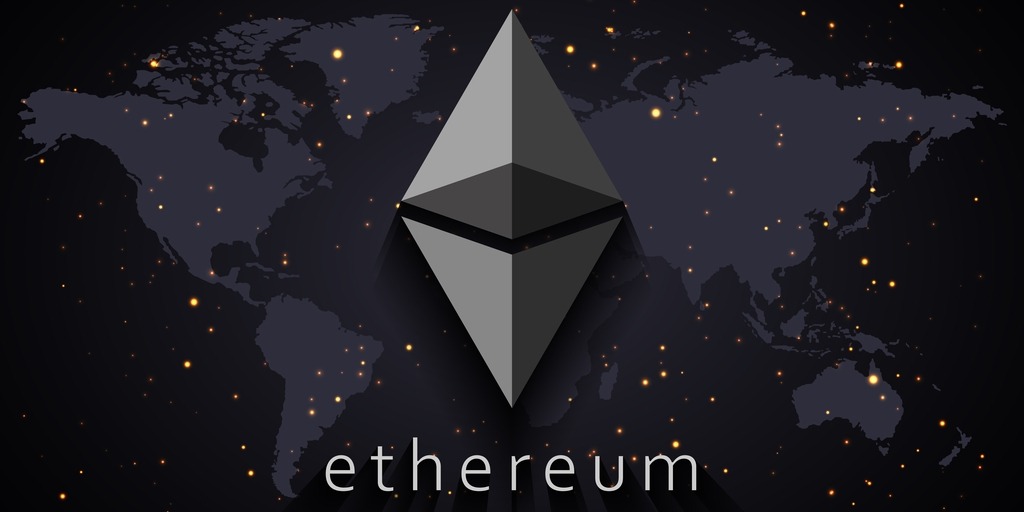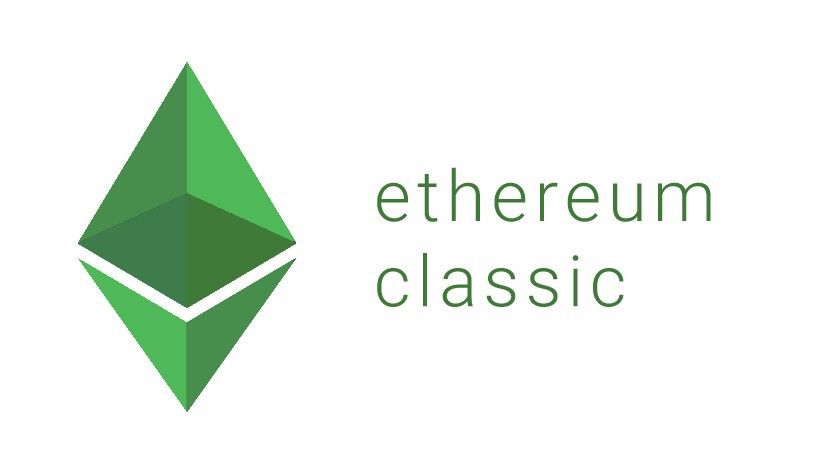An Introduction To Ethereum API And Its Relation With Blockchain
Ethereum, often dubbed as the “world computer” due to its decentralized and programmable nature, has revolutionized the blockchain space. At the heart of Ethereum’s functionality lies its Application Programming Interface (API). Ethereum API is a critical tool for developers, enabling them to interact with the Ethereum blockchain, build decentralized applications (dApps), and harness the power of smart contracts. In this article, we’ll delve into the fundamentals of Ethereum API and explore its various use cases.
What is an API?
Before diving into Ethereum‘s API, let’s clarify what an API is. An API, or Application Programming Interface, is a set of rules and protocols that allow one software application to interact with another. It serves as an intermediary, enabling different software components to communicate and exchange data seamlessly. APIs are essential for developers because they provide a standardized way to access the functionality of a system or service.
Significance of APIs in Blockchain
- Interoperability: Blockchain APIs facilitate interoperability between different blockchain networks and decentralized applications (dApps). They provide a common interface that allows developers to interact with multiple blockchains, ensuring seamless communication and data exchange. This interoperability is essential for creating comprehensive blockchain solutions that leverage the strengths of various networks.
- Smart Contract Interaction: APIs enable developers to interact with smart contracts on blockchain platforms like Ethereum. They can deploy, execute, and monitor smart contracts programmatically. This capability is fundamental for building decentralized applications that automate complex processes and execute business logic on the blockchain.
- Data Access and Analysis: Blockchain APIs provide access to blockchain data, including transaction history, account balances, and contract states. This data is invaluable for developers and businesses looking to analyze and extract insights from blockchain activity. APIs make it possible to integrate blockchain data into external applications and analytics tools.
- Decentralized Finance (DeFi): DeFi platforms heavily rely on APIs to connect with blockchain networks and access financial data. APIs enable DeFi protocols to interact with smart contracts, exchange assets, and provide lending and borrowing services. The entire DeFi ecosystem is built upon the interoperability and data access facilitated by APIs.
- NFT Marketplaces: Non-Fungible Token (NFT) marketplaces leverage blockchain APIs to list, trade, and display digital collectibles. These APIs enable developers to create user-friendly interfaces for buying, selling, and managing NFTs. They also help in tracking ownership and provenance of NFTs.
- Secure Authentication: Blockchain APIs can be used for secure and decentralized authentication processes. Users can control access to their digital identities and personal information using blockchain-based authentication solutions. APIs enable developers to build secure login systems that eliminate the need for traditional centralized authentication methods.
- Cross-Platform Integration: APIs allow blockchain functionality to be integrated into existing applications and services. This cross-platform integration expands the reach of blockchain technology beyond standalone dApps. Businesses can leverage blockchain APIs to enhance their existing systems and offer new services to their customers.
- Decentralized Oracles: Blockchain APIs are critical for decentralized oracles, which provide off-chain data to smart contracts. Oracles fetch data from external sources, such as real-world events or market prices, and feed it into smart contracts. These APIs ensure that smart contracts have access to reliable and up-to-date information.
- Tokenization and Asset Management: APIs facilitate the creation and management of tokens on blockchain networks. Businesses can use APIs to issue, transfer, and manage digital assets and tokens. This capability is particularly valuable for asset tokenization, where real-world assets are represented as digital tokens on the blockchain.
- Cross-Chain Communication: As the blockchain ecosystem expands, the need for cross-chain communication grows. APIs enable cross-chain interoperability, allowing assets and data to move seamlessly between different blockchain networks. This is crucial for projects that aim to leverage the strengths of multiple blockchains.
In summary, APIs are the bridge that connects blockchain technology to the wider world of software development and business applications. They enable interoperability, data access, and the creation of decentralized solutions across various industries. The significance of APIs in blockchain lies in their ability to make this revolutionary technology accessible, practical, and integrated into everyday processes and applications.
Also, read – All About The Relationship Between: Ethereum And NFTs
Ethereum API: Gateway to the Blockchain
Ethereum’s API serves as a gateway to the Ethereum blockchain. It allows developers to interact with Ethereum nodes, query blockchain data, send transactions, and execute smart contracts. Here are some key aspects of Ethereum API:
1. JSON-RPC Interface
Ethereum API typically exposes a JSON-RPC (Remote Procedure Call) interface. JSON-RPC is a lightweight data interchange format that enables communication between a client (such as a dApp) and an Ethereum node (the software running the Ethereum network). Developers can use JSON-RPC requests to retrieve blockchain data, submit transactions, and interact with smart contracts.
2. Web3.js and Web3.py
Web3.js and Web3.py are popular Ethereum libraries that provide easy-to-use interfaces for interacting with Ethereum through API calls. They abstract the complexities of JSON-RPC requests, making it simpler for developers to work with Ethereum in JavaScript and Python, respectively.
Web3 Frameworks:
· dapptools
· HardHat
· Foundry
· Brownie
· TruffleWeb3 libraries:
· Web3. py
· Ethers.js
· Web3.jsWeb3 IDEs:
· VS Code+extensions
· Remix IDEWeb3 SDKs:
· OpenZeppelin
· Chainlink
· thirdweb
· Alchemy
· Moralis— Francesco (@FrancescoCiull4) July 20, 2023
3. Blockchain Data Retrieval
Ethereum API allows developers to query blockchain data, such as transaction history, account balances, and contract state. This information is crucial for building dApps that require real-time updates and data analysis.
4. Smart Contract Interaction
Ethereum’s API facilitates interaction with smart contracts. Developers can send transactions to execute functions within smart contracts and read contract state. This functionality is essential for implementing decentralized applications and automated processes.
5. Transaction Broadcasting
Developers can use Ethereum API to broadcast signed transactions to the Ethereum network. This step is crucial for transferring Ether (ETH) or interacting with smart contracts. The API ensures that transactions are properly formatted and broadcasted to the network for execution.
6. Events and Notifications
Ethereum API allows developers to subscribe to events emitted by smart contracts. This feature enables dApps to react to specific blockchain events in real time, providing a dynamic and interactive user experience.
Use Cases of Ethereum API
Ethereum API is a versatile tool with numerous use cases across various industries and applications. Here are some examples:
1. Decentralized Finance (DeFi)
DeFi platforms heavily rely on Ethereum API to enable lending, borrowing, trading, and yield farming. Developers use the API to interact with DeFi smart contracts, retrieve market data, and facilitate liquidity provision.
2. NFT Marketplaces
NFT (Non-Fungible Token) marketplaces use Ethereum API to list, sell, and purchase digital collectibles. The API facilitates interactions with NFT smart contracts and tracks ownership and provenance of NFTs.
3. Supply Chain Management
In supply chain applications, Ethereum API helps record and track product movements on the blockchain. It ensures transparency, traceability, and authenticity of goods throughout the supply chain.
4. Gaming
Blockchain-based games leverage Ethereum API to handle in-game assets, player interactions, and smart contract-based gameplay. It enables secure ownership and trading of in-game items.
5. Identity and Authentication
Ethereum API can be used to create decentralized identity solutions. Users can have control over their digital identities and grant or revoke access to personal information.
Conclusion
Ethereum API is a powerful tool that empowers developers to harness the capabilities of the Ethereum blockchain. It facilitates data retrieval, smart contract interaction, transaction management, and event handling, making it an indispensable resource for building decentralized applications and services. As Ethereum continues to evolve and expand its ecosystem, the role of its API in shaping the future of blockchain technology remains significant. Whether you’re a seasoned blockchain developer or just getting started, understanding Ethereum API is a crucial step in building decentralized solutions and contributing to the blockchain revolution.
Stay informed with daily updates from Blockchain Magazine on Google News. Click here to follow us and mark as favorite: [Blockchain Magazine on Google News].
Get Blockchain Insights In Inbox
Stay ahead of the curve with expert analysis and market updates.
latest from tech
Disclaimer: Any post shared by a third-party agency are sponsored and Blockchain Magazine has no views on any such posts. The views and opinions expressed in this post are those of the clients and do not necessarily reflect the official policy or position of Blockchain Magazine. The information provided in this post is for informational purposes only and should not be considered as financial, investment, or professional advice. Blockchain Magazine does not endorse or promote any specific products, services, or companies mentioned in this posts. Readers are encouraged to conduct their own research and consult with a qualified professional before making any financial decisions. The featured image used is just a creative depiction of the title and it does not intend to hurt sentiments of any person or institution. If it hurts anyone sentiments, please do not hesitate to reach out to Blockchain Magazine.

 Bitcoin
Bitcoin  Ethereum
Ethereum  XRP
XRP  Tether
Tether  Solana
Solana  USDC
USDC  Dogecoin
Dogecoin  Cardano
Cardano  Lido Staked Ether
Lido Staked Ether  TRON
TRON  Wrapped Bitcoin
Wrapped Bitcoin  Chainlink
Chainlink  Wrapped stETH
Wrapped stETH  Sui
Sui  Avalanche
Avalanche  Stellar
Stellar  Hedera
Hedera  Toncoin
Toncoin  Shiba Inu
Shiba Inu  LEO Token
LEO Token  Hyperliquid
Hyperliquid  Bitget Token
Bitget Token  Litecoin
Litecoin  WETH
WETH  USDS
USDS  Polkadot
Polkadot  Bitcoin Cash
Bitcoin Cash  Ethena USDe
Ethena USDe  Wrapped eETH
Wrapped eETH  MANTRA
MANTRA  Uniswap
Uniswap  Pepe
Pepe  Ondo
Ondo  Aave
Aave  Monero
Monero  NEAR Protocol
NEAR Protocol  WhiteBIT Coin
WhiteBIT Coin  Mantle
Mantle  Official Trump
Official Trump  Aptos
Aptos  Dai
Dai  Internet Computer
Internet Computer  Ethereum Classic
Ethereum Classic  Bittensor
Bittensor  Cronos
Cronos  OKB
OKB  POL (ex-MATIC)
POL (ex-MATIC)  Gate
Gate 




